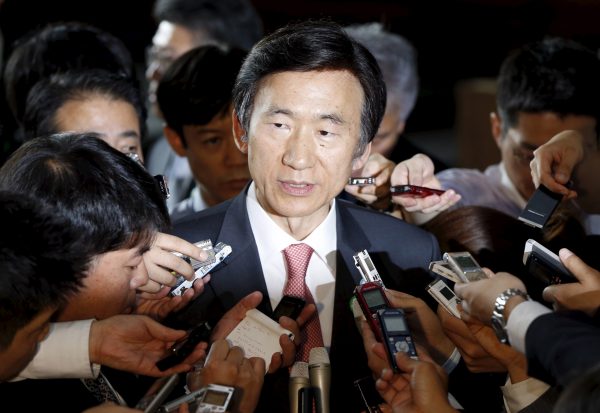Wang responded that Seoul’s decision had ‘harmed the foundation of mutual trust’ between their two countries.
South Korea has achieved remarkable successes in its pursuit of ‘responsible middle-power diplomacy’. It has been recognised as a leader, bridge, agenda setter and activist on the global stage — roles commonly associated with middle powers. Yet as Wang’s comments show, Seoul has been less successful in its regional diplomacy. Can Seoul reconcile its ambition to be a middle power on the global stage with regional realities?
Former president Roh Tae-woo was the first South Korean leader to adopt the ‘middle power’ label, during a visit to the United States in June 1991. The foundations of South Korea’s middle-power identity have been built upon the country’s spectacular economic growth and industrialisation from the 1960s to the early 1990s. Emerging from the Korean War as one of the poorest nations in the world, by 1996 South Korea’s economy had risen to become the 11th largest. With a GDP of about US$1.4 trillion, it now sits between conventionally acknowledged middle powers Canada and Australia in global rankings.
South Korea has also come to occupy important roles on certain global issues. This was perhaps most evident during former president Lee Myung-bak’s time in office. His administration oversaw a series of high-profile international meetings, including the G20 Summit in 2010, the fourth High Level Forum on Aid Effectiveness in 2011 and the second Nuclear Security Summit in 2012.
The current Park government has continued to promote South Korea as a middle power. In 2013, Park’s administration led the formation of MIKTA (Mexico, Indonesia, South Korea, Turkey and Australia), a group of ‘middle-power countries’ that aims to collectively address global challenges and be a bridge among countries with diverse interests.
In the same year, South Korea assumed its second two-year term as a non-permanent member of the United Nations Security Council. During this time, South Korea and other countries sought to include human rights violations in North Korea on the Security Council’s agenda — a task that came to fruition in December 2014.
But Seoul’s relative success in enhancing its middle-power credentials on the global stage is not fully apparent at the regional level. In Northeast Asia, fluctuating relations make it challenging for South Korea to spearhead and sustain cooperative initiatives. For instance, the China–Japan–South Korea Trilateral Summit was put on a three-year hiatus in 2012 due to political and historical disputes among the three countries. Although its resumption in 2015 was a positive sign for Park’s Northeast Asia Peace and Cooperation Initiative, regional ties remain difficult to predict.
South Korea’s room for manoeuvre is constrained by the security dynamics that it faces: the security threat from the North, the consequent necessity of the South Korea–US alliance (including cooperation with Japan) and Sino–US competition. In this security environment, South Korea’s foreign policy decisions — like its decision to allow the deployment of THAAD — also impact on its diplomatic standing and middle-power status. A recent Global Times commentary, for example, portrayed the THAAD deployment as ‘caus[ing] some uncertainties to South Korea’s “middle power” dream’.
South Korea’s ability to act as a middle power is also limited in Southeast Asia. Different immediate challenges face South Korea and Southeast Asian countries. While the former is preoccupied with North Korea, the latter group is more concerned with tensions in the South China Sea and their impact on ASEAN centrality. South Korea has remained silent on the South China Sea tensions. Similarly, beyond the rhetoric in their statements and communiqués, ASEAN has done little on the North Korean issue. It is perhaps unsurprising then that South Korea appears to be visibly absent from the Southeast Asia’s geostrategic calculus.
South Korea’s middle-power ambitions in East Asia are arguably hampered by fluctuating Northeast Asian relations and the dominant presence of ASEAN as the central platform for regional multilateralism beyond issues involving the Korean peninsula.
Yet at the global level, Seoul appears to have more diplomatic space to pursue its middle-power initiatives. This has two implications for the understanding of middle-power status: first, that it perhaps resides best at the international level; and second, that it is ultimately context specific.
For a country proverbially referred to as a ‘shrimp among whales’, South Korea has managed to go beyond regional constraints in its foreign policy and boost its international reputation. This is an accomplishment in itself. But this enhanced status is unlikely to significantly contribute to its regional role in the foreseeable future due to the prioritisation of strategic imperatives at the regional level. Still, promoting ‘responsible middle-power diplomacy’ where appropriate will benefit Seoul by providing more opportunities to display its credibility and assume key roles in world affairs.
Sarah Teo is a PhD student at the Department of Government and International Relations, University of Sydney, and an Associate Research Fellow with the Regional Security Architecture Programme, S. Rajaratnam School of International Studies (RSIS), Nanyang Technological University.


When a country’s neighbor has a strong military with artillery aimed at its capital city and a growing nuclear capability which it seems all too eager to demonstrate within all too ready striking distance of its borders, it seems prudent for S Korea to be focused on security concerns at this time. How can it do otherwise when the North seems unwilling to back down from its intentions to build up its military capacities?